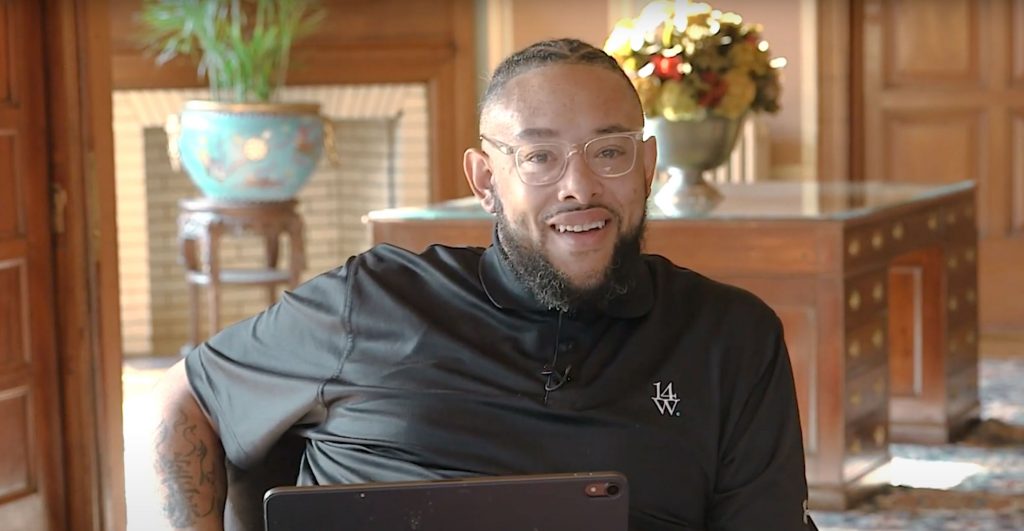Psychological Safety | The What, Why, and How

As a leader on 14 West’s Accounting team, it’s been a goal of mine to create an environment where my team members feel confident they can share their ideas. I want them to feel inspired and motivated to participate. I want them to feel trusted in the work they bring to the table. If they don’t, I think I’ve failed them as their leader.
During my search to better understand what makes a great leader and a great team, I came across the idea of Psychological Safety.
WHAT IS PSYCHOLOGICAL SAFETY?
Psychological Safety is the idea that employees feel safe to offer their opinion and ideas without negative repercussions. Teams with Psychological Safety focus on acceptance and encouragement from peers and management. As Harvard Business Review explains, “psychological safety allows for moderate risk-taking, speaking your mind, creativity, and sticking your neck out without fear of having it cut off — just the types of behavior that lead to market breakthroughs.” (HBR)
According to Amy Edmondson, an advocate for psychological safety, studies show that focusing on creating this type of work environment for your team members is what sets you apart from others.
“Recently, Google did a massive four-year study to discover the differentiator between great teams and not-so-great teams. The biggest differentiator—by far—was psychological safety.”
I don’t know about you, but I want to have a great team.
SO, HOW DO WE GET THERE?
It starts with leadership. As a leader, there are a number of things you can do to create and nurture an environment of Psychological Safety on your team. Below are a few of the ways in which I choose to do it.
HOW TO: CREATE PSYCHOLOGICAL SAFETY ON YOUR TEAM
BE HUMAN
Messages are better received when delivered with respect and compassion. Try to relate to your team members, understand their level of ability and ambitions, and never turn away from an outstretched hand. Your employees are more likely to invest in their work if they trust that you’re invested in them.
LISTEN
There is no better way to learn about your team members than to actively listen to them. I utilize a portion of our weekly one-on-one time to provide space for them to share anything that may be affecting them, personally or professionally. This time is crucial for building that safe space and opening the lines of communication.
AVOID THE BLAME GAME
If there’s a problem in your office, a lull in results, or just a lack of participation on the team, blame will only make it worse. According to Harvard Business Review, the solution is curiosity. It’s more beneficial to state the problem, encourage feedback, and ask for solutions. Ask your team what they think and find out what they need from you rather than blaming them for any issues. Work together to brainstorm a solution.
One of the goals I’ve set for my team is a term I coined called “data validation vigilance,” which basically means that if something doesn’t look right, we investigate it. We look under every rock until we have fixed it or confirmed the accuracy. Asking questions is such an important aspect of finding the root cause of problems.
KEEP UP THE POSITIVITY
If you have the sense that someone on your team is bringing an extra dose of negativity to the workspace, go to them directly. Work with them one-on-one to discuss the issue and offer ways to resolve it. Remind them that negativity can be contagious and destructive and make it clear that you can’t afford to turn a blind eye. The more lenient you are with negative behavior, the more likely it is to become a reappearing issue. Most importantly, be willing and ready to help with any issues that may be prompting this behavior.
HAVE AN OPEN DOOR
Be accessible to your team. When they need to talk or have a new idea that they want to bring to you, don’t give them any reason to hesitate. I regularly encourage my team to come to me with ideas. I want them to know that good ideas don’t just come from the top down. In fact, it can be quite the contrary. Even if the person has been on our team for a few weeks or days, I want them to know that I’m interested in hearing from them.
TAKE IT A STEP FURTHER AND ASK THEM, “HOW AM I DOING?”
Most importantly, talk to your teammates about what they think of your leadership. What do they need more of? What are you giving too much of? Where can you provide extra support? Where would they rather you step back and give them freedom? This will give you a better understanding of what your team needs to succeed and will help them feel they are playing an active role in shaping the culture of the team.
This one can be a bit frightening, but asking for feedback as a leader shows a vulnerability and a desire to improve, which are both key components in creating an environment that supports the psychological safety of the team.








